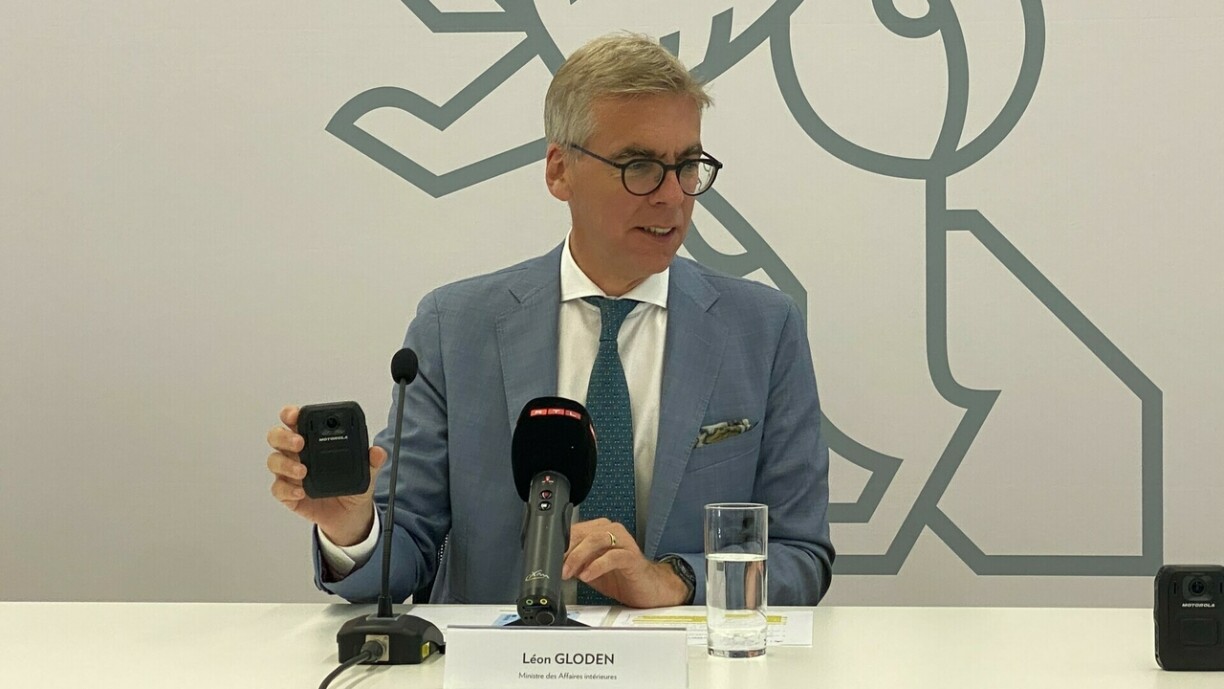
Discussions about police body cameras began as early as 2016. Now, starting 1 July, all officers in Luxembourg will be equipped with them.
“You’re already being filmed with mobile phones – now it’s time to include the police officer’s perspective” says the police union, which was first introduced to the bodycam project in 2022 by then-Minister for Defence and Security Henri Kox.
The small camera, worn as part of an officer’s daily uniform, is activated manually during incidents. When recording begins, the device emits a loud beep, and officers must verbally inform individuals that they are being filmed.
“Police officers are increasingly facing situations where individuals refuse to cooperate,” said Christian Social People’s Party (CSV) Home Affairs Minister Léon Gloden. “This measure is about protecting the safety of officers – and I want to stress this – the safety of the public as well. It’s not about building a surveillance state. The awareness of being filmed alone can deter aggressive behaviour.”
Gloden also highlighted safeguards surrounding the footage: “The cameras and recordings cannot be manipulated. The goal is to provide an objective record of events.”
For security reasons, the cameras begin recording 30 seconds before they are fully activated. When one officer switches on their camera, the cameras of nearby officers are automatically triggered as well, ensuring a broader and more comprehensive recording of the event. According to Alain Engelhardt, Deputy Director General of the Luxembourg Police, the cameras have been well received by officers.
The cameras are manufactured by Motorola, an American-Chinese company. Over five years, the full cost of the cameras and related equipment will total approximately €3.2 million. Police investigators will be able to use the footage as part of their inquiries. After use, the cameras are placed in charging stations, where images and recordings are automatically uploaded to a secure server in Germany. If the footage is not used by the authorities, it is retained for 28 days before being automatically and permanently deleted.